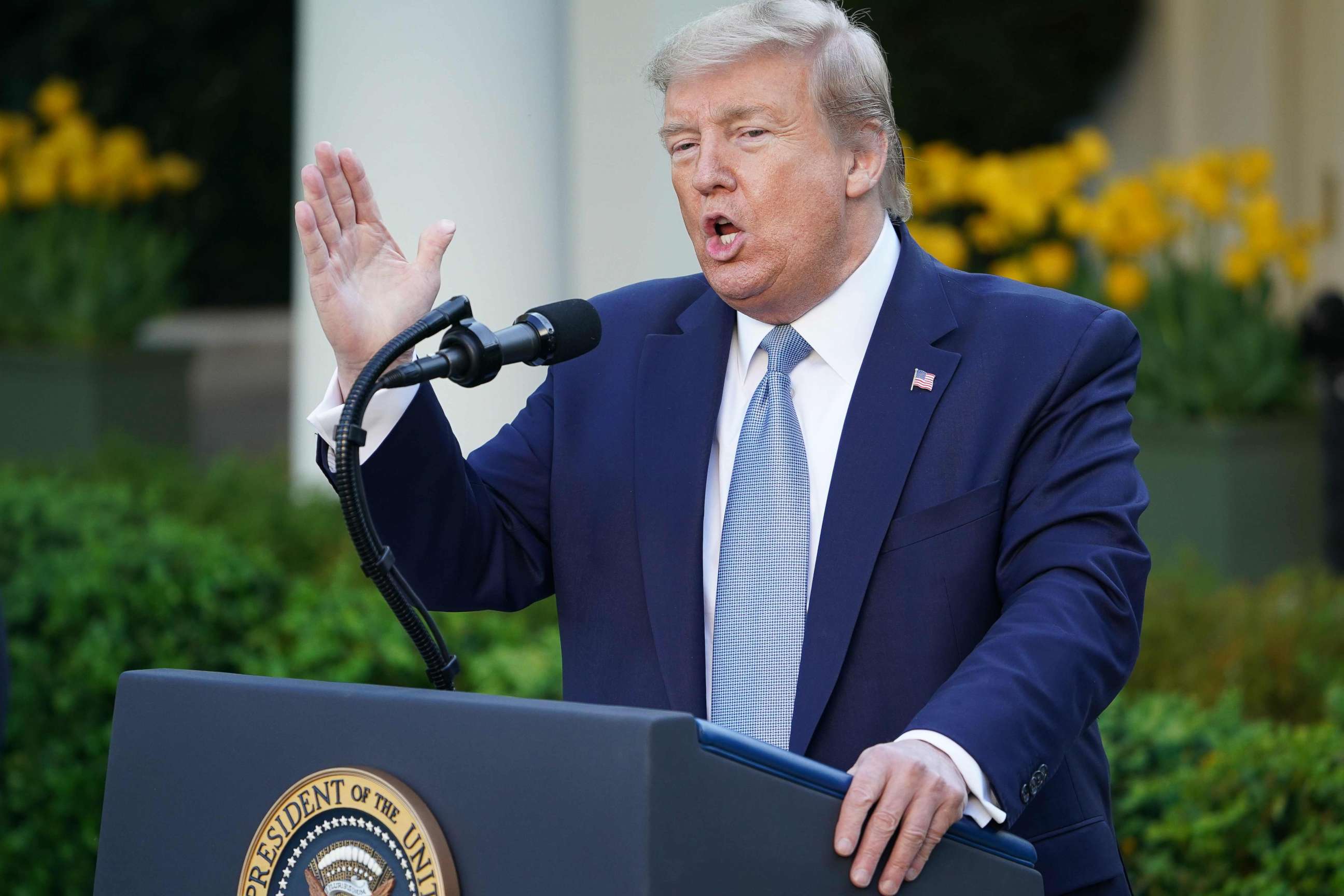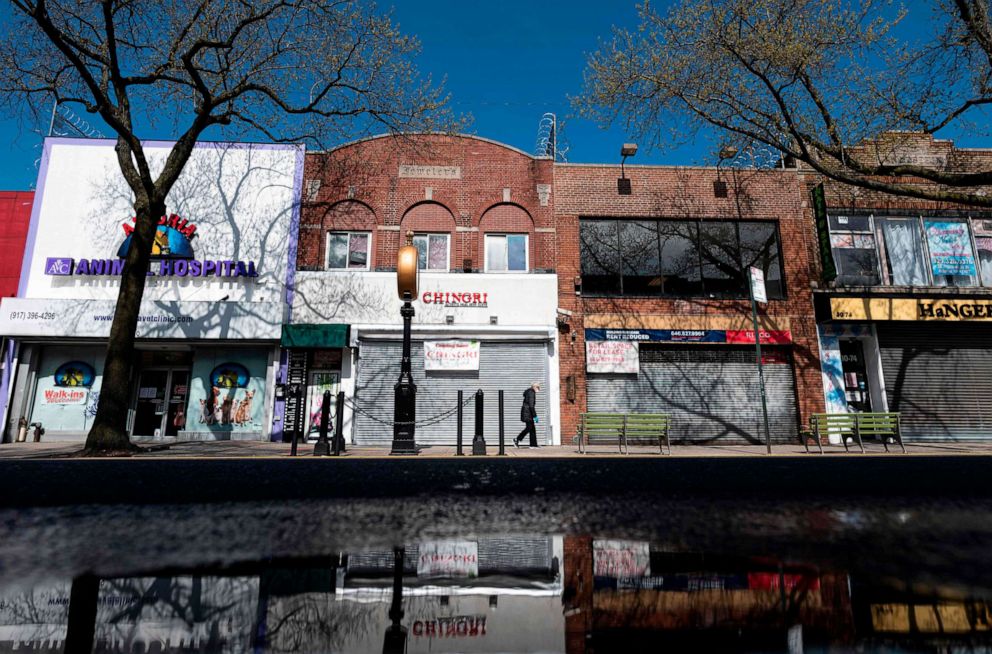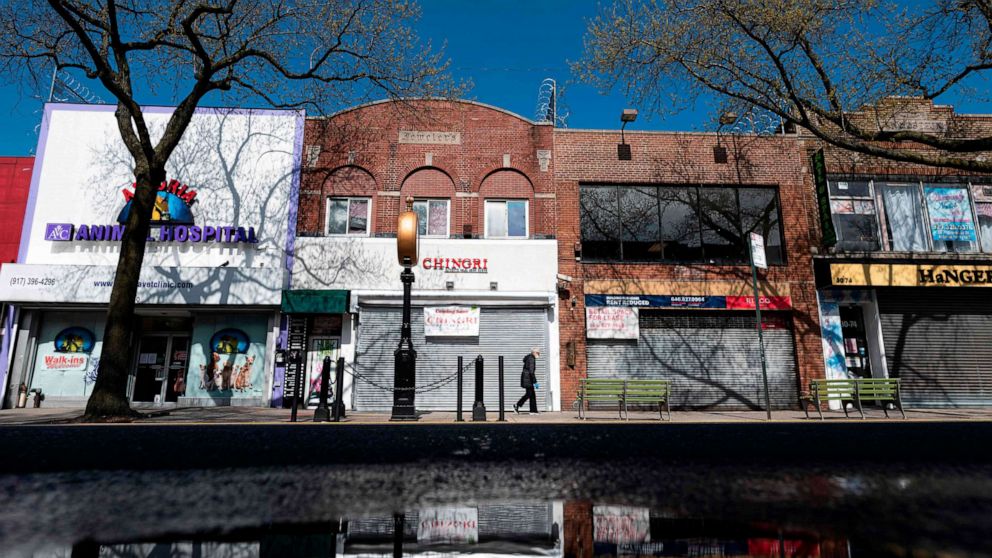Small business rescue program runs out of money amid political standoff
Thousands of small business owners across the U.S. have been left in the lurch as the popular federal government-backed loan program meant to save them and protect worker paychecks in the pandemic fallout officially ran out of money Thursday morning.
That development comes amid a political standoff between the White House, congressional Republicans and Democrats. Talks were set to resume Thursday afternoon.
The roughly $350 billion Paycheck Protection Program (PPP), which experienced a very rough rollout, is designed to cover eight weeks of a business' payroll expenses, so the company can retain its workers or hire back those it may have already furloughed, and the loans are forgivable provided that 75% of the total amount borrowed is used for payroll expenses.
But as of mid-morning Thursday , the website for the Small Business Administration, which administers the program, read, "The SBA is currently unable to accept new applications for the Paycheck Protection Program based on available appropriations funding. Similarly, we are unable to enroll new PPP lenders at this time.

"It's been so good, it's almost depleted, but we can't get the Democrats to approve it," President Donald Trump warned in a Rose Garden press conference Wednesday night.
SBA indicated late Wednesday, according to a congressional source, that more than 1.5 million applications had been approved, totaling more than $324 billion, from more than 4,900 lending institutions.
Tune into ABC at 1 p.m. ET and ABC News Live at 4 p.m. ET every weekday for special coverage of the novel coronavirus with the full ABC News team, including the latest news, context and analysis.
The administration has requested another $250 billion for the program, but a political clash between Democrats and Republicans has let the funding lapse. Democrats have insisted that part of the funding be walled off for lenders that service minority-owned businesses, and have push for another $250 billion for hard-hit hospitals on the frontlines of the pandemic, states and local governments suffering from revenue loss, and a 15 percent increase in food stamps.
Republicans, led by Senate Majority Leader Mitch McConnell, R-Ky., have insisted on a straight $250 billion increase in PPP, saying that Congress needs to wait to fund other needs until lawmakers see how their $2 trillion pandemic stimulus package has worked. The GOP leader tweeted Thursday, "Republicans tried to pass more money for Americans’ paychecks last week. Democrats blocked it."
Senate Minority Leader Chuck Schumer, D-N.Y., and his staff have been negotiating some kind of compromise directly with Treasury Secretary Steven Mnuchin.
The Democratic leader tweeted Thursday, Our small biz programs need more money now. We all agree But Dems actually want to get it into the hands of all who need it. That's not what's happening when websites are crashing, mom & pop shops and minority businesses are shut out, bigger banks are loaning to fav customers."
Schumer told reporters on Wednesday that without the increased emergency aid, "We're going to have millions, millions out of work."

Aides to leaders on both sides of the aisle continued to express hope that a deal would be reached soon. The Senate is scheduled to come into session briefly on Thursday and the House on Friday at which time any business that has the unanimous support of members could be approved. It is possible a deal would be supported this week in those sessions.
House Speaker Nancy Pelosi responded to GOP accusations that she's holding small businesses hostage to her demands that they say are not immediate.
"The question for Republicans is why are you ignoring your state?... Why did you turn your back on the hospitals?" she saids, referring to a Democratic demand that aid to hard-hit hospitals be part of the package.
Pelosi told reporters Thursday that the next meeting of House and Senate Democratic leadership staff with Mnuchin would happen later in the day.
"Negotiate, negotiate, negotiate. That's what we do," said Pelosi. "We're hopeful (Treasury staff) will come back with something that strikes a balance with what we know we need to do."
"It is inexcusable that the Paycheck Protection Program will grind to a halt tonight," Senate Small Business Committee Chairman Marco Rubio said in a statement Wednesday. "In less than two weeks, the PPP helped over 1 million small businesses receive forgivable loans. Now, millions of small businesses are in limbo because Democrats refused to put aside partisan politics and fund this bipartisan program."
Many businesses whose applications were approved before the funding ran dry are in limbo, too. The SBA has not specified how much of the allocated $350 billion has actually been transferred to owners' bank accounts, and many businesses ABC News has contacted haven't seen their loans.
Larry Shulman, who owns a home audio/visual company in Massachusetts, applied for a PPP loan on the first day of eligibility, April 3. Thirteen days later, he's still waiting, and his costs are growing ever higher.
"Three weeks of payroll out of my pocket, and still no money," he said in an email. "If they don't reply, I will have to lay off."
For Patrick Slaughter, the owner of a small law firm in Knoxville, the situation is becoming dire. He's being forced to consider closing the firm if the loan doesn't arrive soon.
"I lost an attorney on Monday because I had to cut his pay along with everyone else's, including mine. Not sure how much longer we can stay afloat," Slaughter said.
Meanwhile, it remains to be seen what happens to lenders who have borrowers in the pipeline. The head of the Consumer Bankers Association, an industry trade group closely monitoring PPP told reporters that his organization was pushing SBA for guidance on what happens next, noting that much was at stake.
"We think any hour now, we'll reach the $345 billion number (for PPP) -- which is the actual number -- and we know now there are 700,000 applications that our banks have and are going through the underwriting process and haven't been sent to SBA yet. We think at the end of the day, we're going to need upwards of $1 trillion to satisfy the demand of the nation's small businesses."
In a statement Wednesday, Mnuchin and SBA Administrator Jovita Carranza urged Congress to appropriate additional money because, "by law, the SBA will not be able to issue new loan approvals once the programs experience a lapse in appropriations."
ABC News' Sarah Kolinovsky contributed to this report.
This report was featured in the Friday, April 17, 2020, episode of “Start Here,” ABC News’ daily news podcast.
"Start Here" offers a straightforward look at the day's top stories in 20 minutes. Listen for free every weekday on Apple Podcasts, Google Podcasts, Spotify, the ABC News app or wherever you get your podcasts.
What to know about coronavirus:
- How it started and how to protect yourself: coronavirus explained
- What to do if you have symptoms: coronavirus symptoms
- Tracking the spread in the US and Worldwide: coronavirus map




